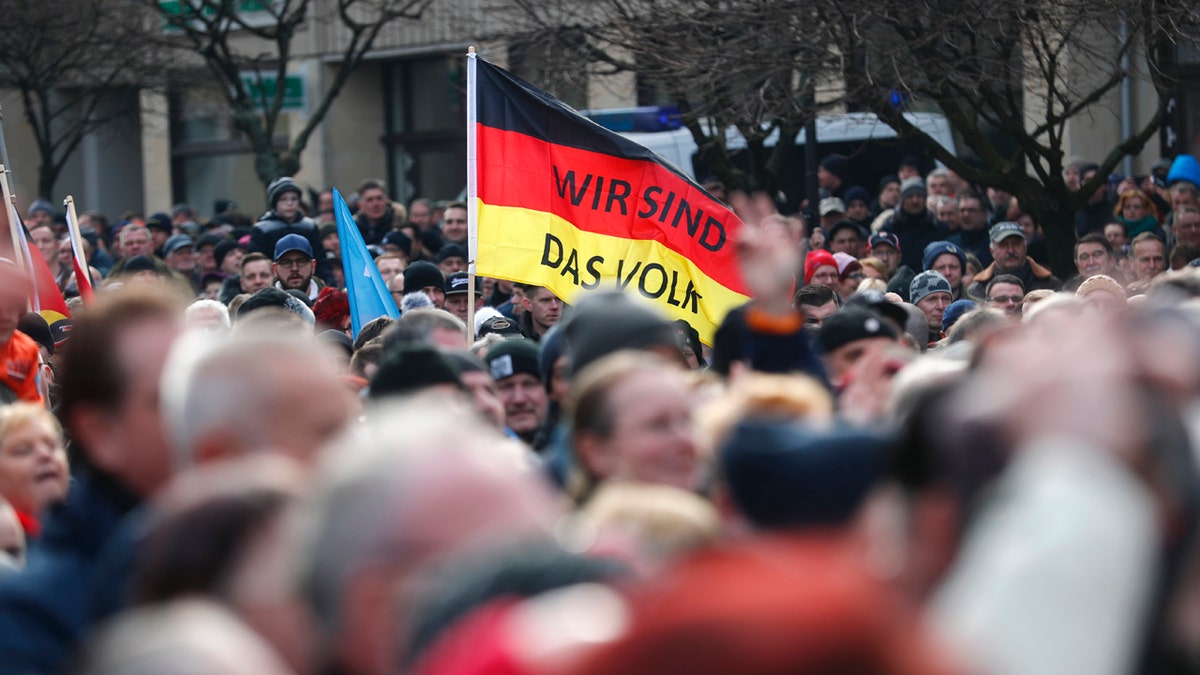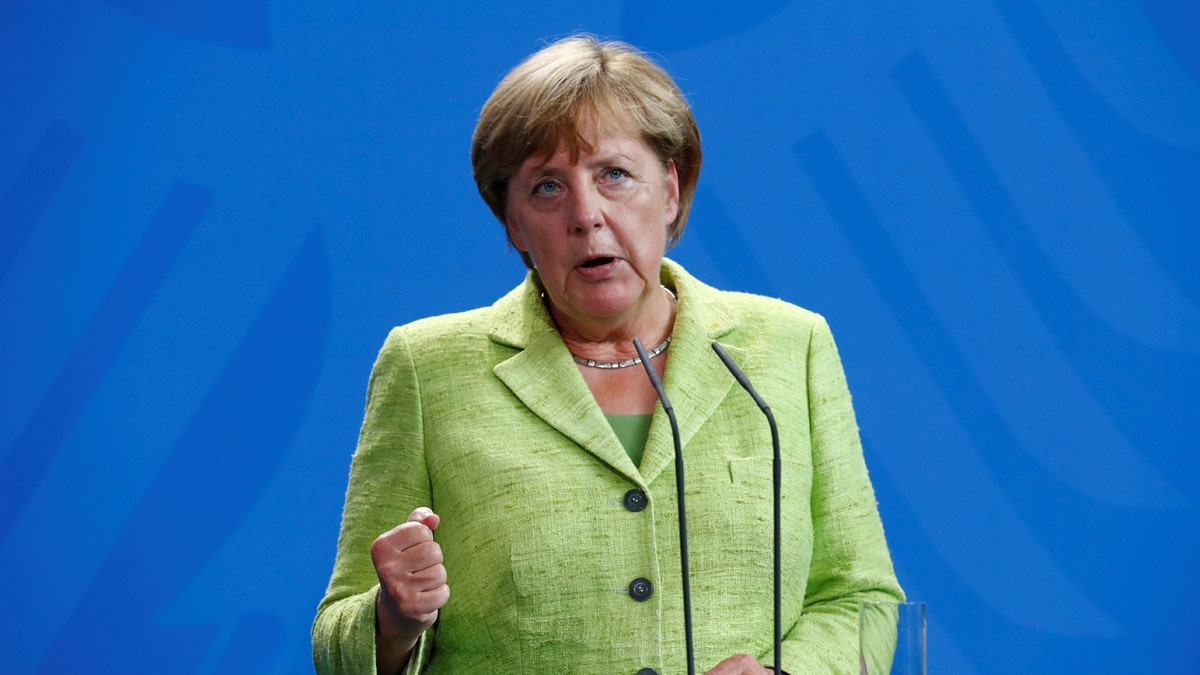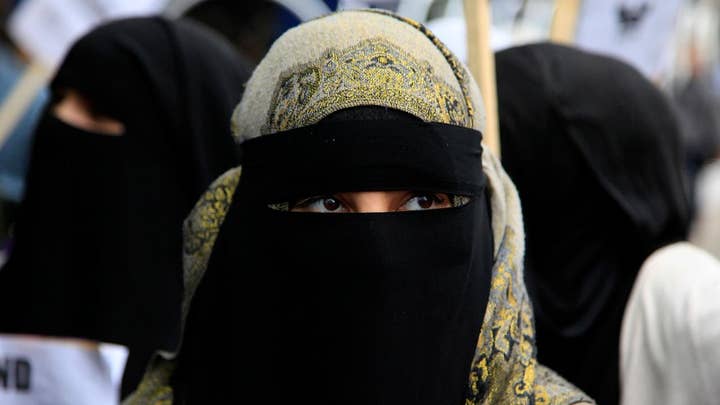
An Afghan migrant named Abdul is accused of killing his ex-girlfriend, a 15-year-old German girl named Mia.
The story of the brutal small-town stabbing death of a 15-year-old girl by her jilted ex-boyfriend was by itself enough to warrant front-page news in Germany, where such crimes are exceedingly rare.
But what made the killing in Kandel, in the country's south, the talk of everyone of the European nation from politicians to beerhall patrons was that the girl was German, and the ex-boyfriend an Afghan migrant.
“I am mother of three children, and we are here together to protest against the aggressivity of people who are grabbing our children, and who are — who bring fear in our country,” Martina Boeswald, a lawyer in Kandel, told PBS. “We want to live in peace. And this is the fault of Angela Merkel.”
That sentiment typifies concerns around the country, where there is increasing concern about safety since Chancellor Merkel opened the country’s gates two years ago to more than one million migrants fleeing the Middle East, North Africa and Central Asia.
Complicating the discussion is a burgeoning rightist political movement led by the Alternative for Germany party (AfD), which has used attacks like the one in Kandel – along with the 2016 Berlin Christmas market attack and a slew of sexual assaults in Cologne – to attack the newly formed coalition of Merkel's Christian Democratic Union, the Christian Social Union in Bavaria and the center-left Social Democratic parties.

People hold German flags as they attend a demonstration against migrants in Cottbus on Feb. 3. (REUTERS/Hannibal Hanschke)
“Merkel’s ‘Open Door’ policy to immigrants was roundly criticized by voters,” Michael Geary, a history professor at the Norwegian University of Science and Technology and a global fellow at the Woodrow Wilson International Center for Scholars in Washington, told Fox News. “The AfD have tapped into this anger and the popular perception (whether accurate or not) that immigrants are the cause of violent crime.”
There's also a widely publicized report that cites refugees as responsible for a spike in crime. Conducted by the Zurich University of Applied Sciences, and paid for by Germany's Ministry of Family Affairs, the report noted police in the German state of Lower Saxony witnessed about a 10 percent increase in reported violent crimes in 2015 and 2016, with 90 percent of that increase being attributed to migrants.
The study's authors cite a number of contributing factors for their correlation between the rise in violent crime and the refugee crisis in Germany. First, the study found, crimes committed by migrants were twice as likely to be reported as those committed by German nationals. It also found that males ages 14-30 were both the most likely group to commit serious crimes, and the largest age bracket of migrants in Lower Saxony.
The report also noted a significant difference in the number of crimes committed by migrants from various regions. Those from Syria, Iraq and Afghanistan were significantly less likely to commit a violent crime than those from North Africa, the report said. Some 17 percent of the violent crimes reported in Lower Saxony were thought to have been perpetrated by North African migrants, who comprise less than 1 percent of the state’s total registered refugees.
Other reports released over the past two years appear to contradict the link between migrants and increased violent crime rates.
For instance, a 2016 study, carried out by the pro-migration group Mediendienst Integration and based on statistics from Germany's Federal Criminal Police Office, did not find refugees contributed to more crime - apart from perhaps burglaries and pickpocketing.
And figures released last year by Germany’s Interior Ministry found that while suspected crimes by migrants have risen, most are carried out by repeat offenders and by immigrants from the Balkans, Morocco, Algeria and the former Soviet Union, who have little chance of being granted asylum. The numbers also indicated that violent crime has seen a drastic downward trend over the last decade in Germany, which is deemed one of Europe’s safest nations.
One area that has seen a rise in violent crimes: those committed by anti-migrant, far-right groups. Those episodes rose 14 percent in 2016, according to government statistics, and continue to trend upward.
“There were approximately 1,500 crimes targeted against Jews and Jewish institutions in 2017,” Geary said. “This is an average of 4 per day. German police have concluded that in 97 percent of these cases, there was a clear far-right motive behind the crime.”
Geary also said the rise in anti-Semitic crimes "has also coincided with the rise of the far right, itself a worrying trend in a country that has fought hard over the last decades to tame the worst of its nationalist tendencies.”

German Chancellor Angela Merkel addresses a news conference at the Chancellery in Berlin last August. (REUTERS/Hannibal Hanschke)

